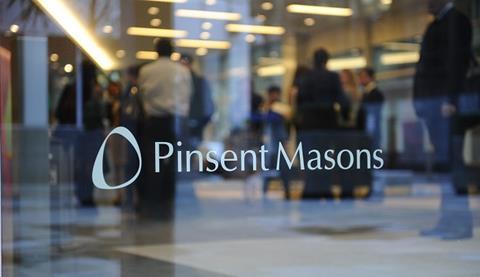
International law firm Pinsent Masons employs almost 3,000 members of staff globally, with office locations spanning Europe, the Middle East, Africa, the Americas, and Asia-Pacific. The law firm, which featured in lesbian, gay, bi and trans (LGBT) equality charity Stonewall’s 2017 Top Global Employers list, works to ensure it provides an inclusive working environment for all of its global employees.
Pinsent Masons takes an embassy approach to diversity and inclusion, which is designed to uphold its commitment to inclusivity while prioritising employee safety and remaining sensitive to local laws and cultures. Kate Fergusson, head of responsible business, says: “What we try and do is have an overarching statement of Pinsent Masons’ values and commitment to diversity and inclusion that means wherever [an employee is] in the world, if [they are] in a Pinsent Masons office then [they] can expect the same values to be in place.”
The organisation has support mechanisms in place around secondments to countries where legislation differs, such as a buddy system within its LGBT network that connects an employee with a colleague who has worked in that region, so that they can ask questions and find out more about their experiences.
In 2016, Pinsent Masons also rolled out its previously UK-based employee assistance programme (EAP) internationally to enhance the support available to its global workforce on a range of topics.
There are a number of employee network groups in place at the firm. These are open to employees globally, with a network chair in each office and senior partner support at board level. The organisation works closely with these networks when rolling out new policies and benefits to ensure that the policies and language used are fully inclusive. For example, it consulted members of its LGBT network when developing its policy to support trans employees. It began to implement this policy in 2016 and is developing it globally where possible, with a view to broadening the focus to take into account gender identity issues more widely. It includes a review of dress codes and office facilities, as well as training for front-of-house staff to make sure that it provides an inclusive environment for employees, clients, and visitors. The firm has also updated its client and HR systems to include the title ‘Mx’.
The organisation also introduced an inclusive leadership training programme in 2016, which it is in the process of rolling out globally to senior leaders, managers, and partners.
Pinsent Masons communicates its commitment to diversity and inclusion from the moment an employee joins the organisation, as well as to prospective employees, and this has had a positive impact on talent attraction at the firm.
The organisation runs a Diversity Week, which is a global event encompassing locally-run initiatives. To ensure that the event is accessible to all staff, keynote speaker sessions are recorded so that they can be viewed across different time zones. The organisation also holds a Wellbeing Week, which includes a diversity and inclusion focus, and which provides an opportunity for the firm to promote the benefits available to staff.
In addition, Pinsent Masons hosts a regular series of events throughout the year to further support its diversity and inclusion agenda. Jonathan Bond, director of HR, says: “This has the effect of keeping the theme of inclusiveness uppermost in people’s minds, and it underlines the fact that it’s an environment where people can be free to be themselves in every office.”
Read more
How to create a global reward strategy to support diversity and inclusion
Clare Gregory and Kate Hodgkiss: Global reward strategies - supporting diversity and inclusion legitimately
















